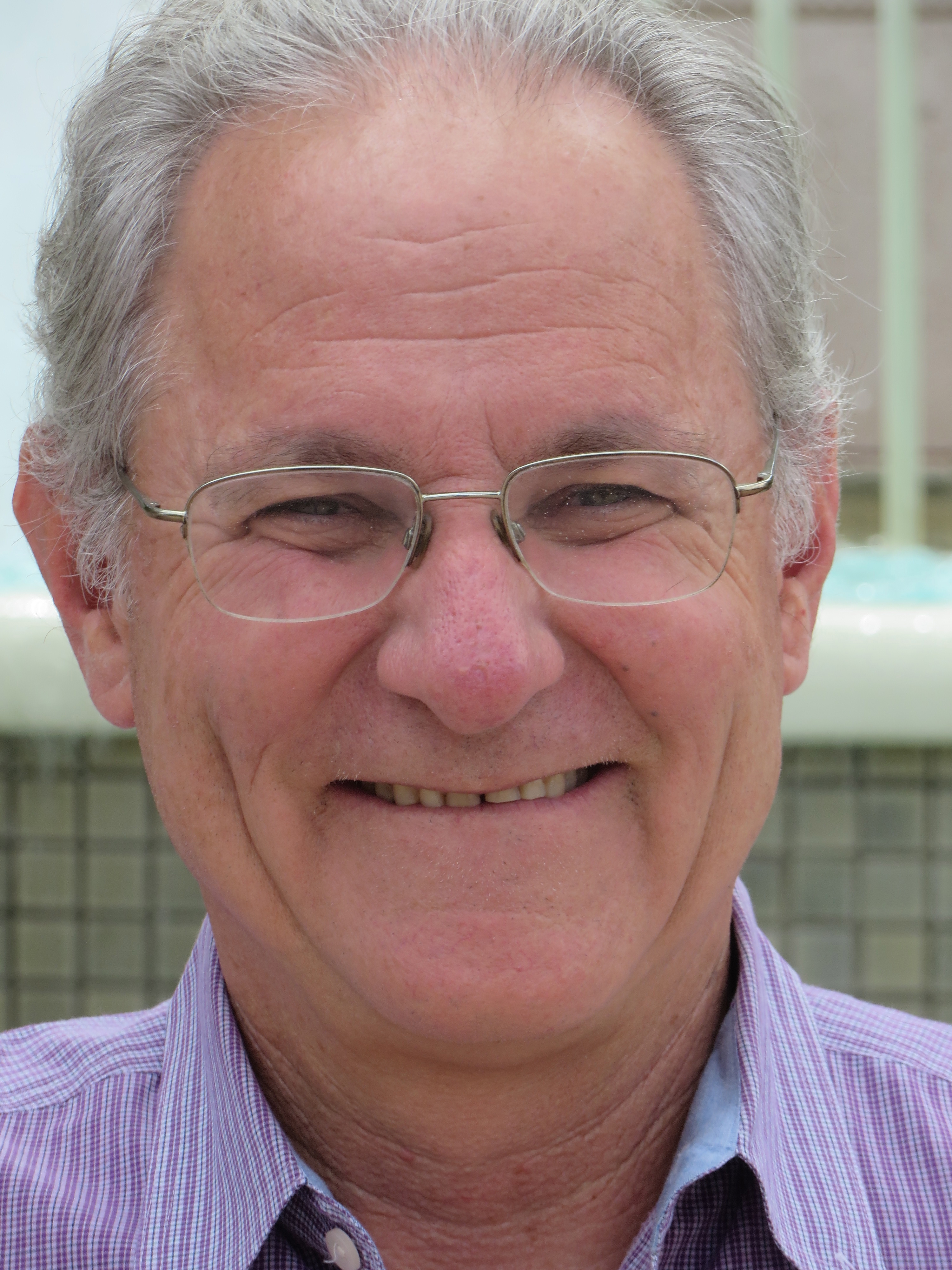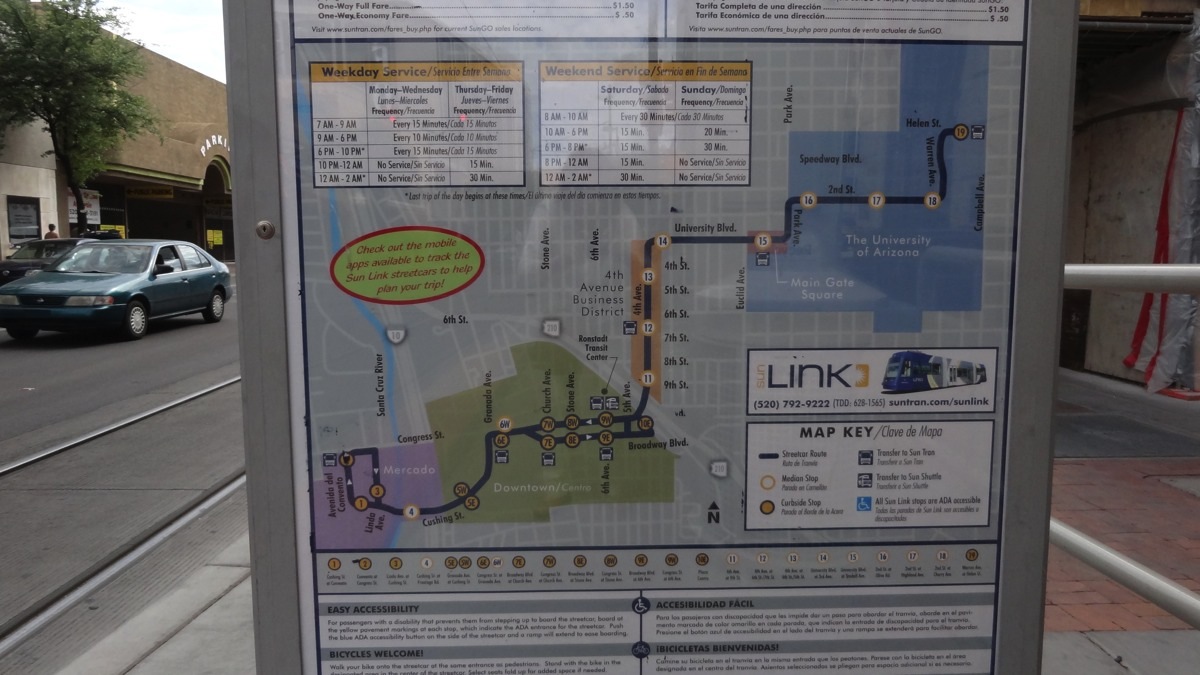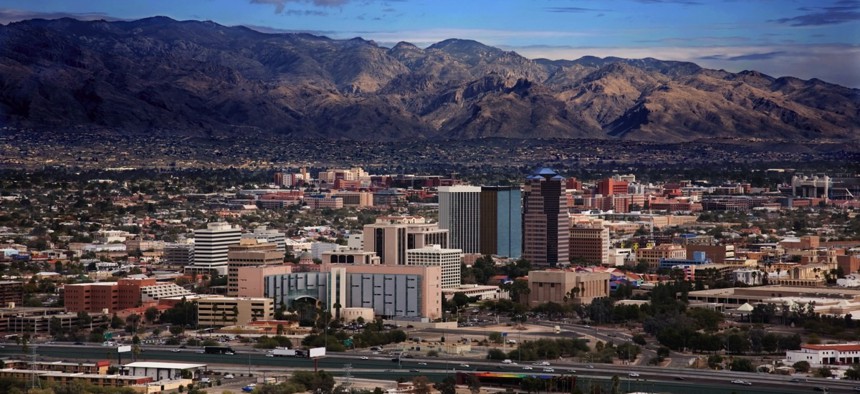Connecting state and local government leaders
Smart planning, economic development, water and relations with Mexico are among the top issues for this growing Southern Arizona city.
TUCSON, Ariz. — Mayor Jonathan Rothschild is an activist Democrat who is using all the tools of government to promote the economic health of this Southern Arizona city, the state’s second largest.
His task is not easy, for the city and surrounding Pima County face a variety of compelling problems: dependence on the military in a time of retrenchment and change, water supply issues on the horizon, budgets suffering from reductions in aid from state and federal sources, and the immigration issues that flow from its proximity to the Mexican border.

As it addresses these issues, the city also occupies an interesting niche in the national political landscape, a Democratic stronghold in one of the nation’s most conservative states.
Rothschild, Tucson’s mayor since 2011, kindly granted me more than an hour of his time on a Saturday morning in earlier this month, giving me his perspective on the city and its prospects. He is a lifetime resident, long active in civic affairs. As a member of the city council, his vote counts no more than the other six members—all Democrats—in the city’s weak-mayor and city manager form of government. But he serves an important role representing the city and mobilizing opinion to support the council’s goals.
I was particularly interested in how the city was working to encourage economic growth—and the interplay of outside forces affecting the city’s economic prospects. We began by talking about downtown development, touched on his efforts to create a binational economic growth initiative with Mexico, and discussed the future of Davis-Monthan Air Force Base, one of the area’s largest employer, among other topics.
Downtown Development
Tucson is a low-rise city, with mile after mile of single-story structures surrounding a small core with just a few mid-to-high rise buildings. Its population in 2010 was 520,000 in a metropolitan area that’s home to about 1 million people. Median household income in 2013 was estimated at $43,822, about $8,500 below the national average.

The city’s core has seen a much-needed boost with the coming of a new streetcar line, 3.9 miles of track and gleaming new streetcars connecting the University of Arizona campus with downtown and beyond. Streetcars stop at the Fourth Avenue shopping and entertainment districts, downtown Tucson, the Tucson Convention Center and the Mercado District under development west of Interstate 10.
Planning for the streetcar began in 2006, and the project got a big boost in 2010 when it received a $63-million grant under the federal stimulus-funded Transportation Investment Generating Economic Recovery (TIGER) program. It opened service last July and so far ridership is exceeding expectations.
The mayor gives the streetcar some of the credit for a surge in new business downtown. Together, public and private investment in the area the line serves has totaled roughly $1 billion, he said. Two new hotels are set to open before long, and restaurants and retail establishments are up and running. The city government has taken advantage of various state-authorized incentive programs to encourage developers. The city’s own “primary jobs incentive” program offers to waive fees for developers whose projects will produce at least 25 new jobs paying more than 125 percent of the median wage, or about $52,000 a year, along with health care policies covering 75 percent of costs. This and other incentives have encouraged many tens of millions in new investment, the mayor has said.
And the mayor has been encouraging “infill,” the use of undeveloped or redeveloped land toward the center of the city. “We know it can be cheaper to develop vacant land” on the outskirts of town, he said in a recent “State of the City” address. “But we don’t want sprawl. Sprawl hurts everyone.”
As we talked, the mayor cited three motivations: the strong conservation ethic encouraged by the famous local conservationist, U.S. Rep. Morris K. Udall, during his long political career in Tucson; the desire of young people to cut transportation costs and to live closer to their jobs; and “the idea of” creating a vibrant core city. The city is encouraging all kinds of residential development and in its wake, entertainment, restaurants “and all those things that make a community active,” he said. He estimated that the city is about half way along the path to a revitalized urban core. Other nodes of commercial development might follow, Rothschild said, in the wake of downtown renewal. He is pursuing changes in the city charter that would grant Tucson a large increase in bonding capacity to finance needed infrastructure.
Rothschild’s vision of a vibrant downtown has just received a strong endorsement from one of the nation’s leading urban planning experts, University of Arizona professor Arthur C. Nelson. In a column for the Arizona Daily Star on April 19, Nelson wrote that “downtowns across America are watching downtown Tucson for the lessons it is already offering them.”
International Reach
Of Tucson’s largest employers, only one is a private company, Raytheon, which manufactures missile systems in the metro region. The University of Arizona is the No. 1 employer, with about 12,000 on staff (a number that’s being reduced as a result of state government cutbacks). Raytheon is second, at 11,400, followed by Davis-Monthan Air Force Base, with 10,900 employees. Pima County, the U.S. Border Patrol and the Tucson Unified School District, with workforces in the 6,000-7000 range round out the top five.
Raytheon is a stable, and likely growing, employer. To give the company room to expand, Pima County and other funders are moving a road, and the April 1 groundbreaking for the new project, the South Side Aerospace Highway, attracted Rothschild and all of the state’s top elected officials.
Davis-Monthan Air Force Base has been of concern to local authorities inasmuch as the Air Force has long wanted to retire its fleet of A-10 Warthog close-support aircraft. The base is host to the AF 355th Operations Group, whose five squadrons operate 83 A-10C aircraft. About 2,000 jobs are tied to the program. First built in the early 1970s, the A-10s are falling prey to technological advance and shifting budget priorities in the Air Force. Last year, Defense Secretary Chuck Hagel proposed retiring the entire fleet. But Congress resisted, and now, U.S. Sen. John McCain of Arizona is wielding his power as chairman of the Senate Armed Services Committee to defend the program. Tucson’s new member of its delegation to the U.S. House of Representatives, Rep. Martha McSally, herself a former A-10 pilot, made the case for retaining the program in an April 20 column in The New York Times.
Looking forward, Mayor Rothschild is working with state and county government officials, Arizona’ congressional delegation and business leaders “to develop the best possible case for Southern Arizona’s military institutions.” Davis-Monthan has many strengths, including great flying weather, proximity to a large live-fire range, and a variety of important support units in command and control, communications, electronics, engineering, pararescue, unmanned aerial vehicle operations and more. It also serves as the Air Force’s “boneyard,” where retired aircraft are kept outdoors in storage or to provide spare parts.
The A-10 has been of central importance to the base, however, and its eventual retirement will leave a hole. The mayor would like to position the base for the future as “a central operations base” with the command and control, air support and logistics capabilities to mount a comprehensive response to crises wherever they arrive, he said in his annual address. That concept would probably not rely on permanent basing of Air Force aircraft at Davis-Monthan.
A newly released report spells out the operations base idea in detail. Commissioned by the city and written by Barry Blechman of the nonpartisan Stimson Center, the report will “serve as a baseline going forward,” Rothschild said as it was released on April 18.
An important initiative the mayor has pursued has been improvement of relationships and trade with Mexico. The federal government in February concluded a sweeping upgrade of the Mariposa Port of Entry in Nogales, about 60 miles from Tucson. Already Arizona’s busiest border crossing, Mariposa tripled its capacity to handle northbound traffic at a cost of more than $200 million in federal funds. But once across the border, vehicles face a two-lane bottleneck. So the mayor has been pushing, along with others, to speed up state funding to widen State Road 189 and improve the southern sections of Interstate 19.
Rothschild speaks passionately about his outreach to Mexico. “Our city is 43 percent Hispanic,” he said, “with families going back 300 years to those who arrived three months ago.” He alludes to harsh anti-immigration rhetoric and policies found elsewhere in the state, and said his outreach hoped to convey “that what they were reading in the newspaper, hearing from elected officials, was not the general feeling of the people of Arizona, and that we wanted to work together” to improve cross-border relationships.
Rothschild is an active proponent of the Arizona-Sonora Binational Megaregion, created a year ago by governments on both sides of the border to promote commerce and trade. He talks of world-class manufacturing plants built over recent years on the Mexican side, and said the cross-border area is a manufacturing and logistics powerhouse—joining “the ranks of other manufacturing megaregions such as Chi-Pitts and Charlanta.” He’s encouraged production of an “Arizona-Sonora Business Guide” listing 1,200 businesses in the “megaregion.” More than 300 business and government leaders from both sides of the border attended a “Borderlands Trade Conference” last May, he reports.

(Image by Anton Foltin / Shutterstock.com)
Water and Beyond
Tucson was blessed this spring with more rainfall than normal, and the desert was in spectacular bloom during my visit. But water is certainly a challenge to the economy of Southern Arizona, as it is in much of the parched West. It’s expected that the Central Arizona Project, which controls flow of the Colorado River, will for the first time declare a “shortage” in 2016 or 2017, as storage levels in Lake Mead decline to a tipping point. That would likely bring cutbacks throughout Arizona, which was the junior partner when the Colorado River Compact was negotiated in 1922.
“We all need to be constantly vigilant about conserving our water,” the mayor told me. And, indeed, the city has been proactive over the years. It has incentives for low-flow toilets, methods of catching rainwater, use of graywater and more. It has conducted a lot of public education. The city water authority is upgrading to smart meters that can monitor water usage in real time, and catch leaks before consumers do. Water pricing also has sought to discourage waste. Whereas in Phoenix, a traveler sees a lot of grass on lawns and in public spaces, Tucson is home to a lot of xeriscaping.
Now, the city is working with Phoenix to build common facilities for storing Central Arizona Project water underground, a pilot program that could protect against drought and cut costs of pumping water from underground aquifers to consumers in Tucson.
In this and many other projects, the mayor is working in a complex intergovernmental maze. The airport authority, for example, is an independent body that looks to Rothschild to help assemble the right people if an airline wants to discuss a new route to Tucson. Direct flights to East Coast cities are off the table at the moment, but tourism still is “ticking up” with the economy, the major said.
The city also benefits from grants from Washington and the state capital—grants that have been on the decline in recent years. It’s a trend that prompts the Mayor to tell me: “I believe, not that I wish it to be this way, that the only people who are going to take care of us here in the valley is us.”
On immigration, he hopes to bring the city’s sizeable undocumented workforce “out of the shadows,” to the benefit of the local economy, but cannot do much without help from Washington and Phoenix.
The Education Challenge
Rothschild is passionate and active on education issues, even though he has less power in this arena than in others. School districts are the creatures of, and report to, the state government. And under the tax-cutting, low-spending regime of Gov. Doug Ducey and the GOP-run legislature, state funding for K-12 isn’t enough to meet Tucson students’ needs in the view of local leaders. The mayor encouraged business leaders to get involved, and in his state-of-the-city address, he thanked the Tucson Metro Chamber of Commerce for sending a letter to Ducey and legislative leaders “urging increased funding for our public schools.”
Rothschild has been active in the Arizona Mayors Education Roundtable, which has focused on promoting literacy by third grade and assuring that high school students graduate. He has organized “Steps to Success” program he has helped organize, he and other volunteers have knocked on the doors of dropped-out students, prompting more than 250 to re-enroll.
“We are a university community that values education,” he said. “If you don’t properly fund education, it is very difficult to produce the right results. And if you are trying to attract businesses here, their first question is how is your education system? They want an educated workforce, and they are bringing families and want to make sure their kids get a good education.”
“You know these legislators making these cuts say: ‘Look, we have only so much money available.’ But the question they’re not asking is: Should we be trying to raise more revenue?”
Editor's Note: This article has been updated to clarify the name of the "Steps to Success" program.
NEXT STORY: Drilling Into State of the State Addresses, Gubernatorial Agendas Take Shape




